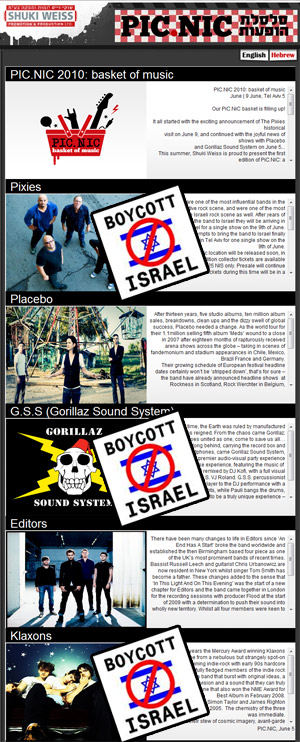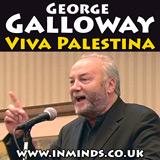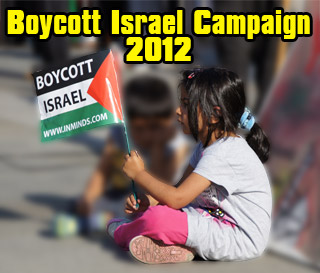
 Innovative Minds © 2014. All Rights Reserved. www.inminds.co.uk | |||||||||
On the Cultural BoycottBRICUP, June 2010 Newsletter (29) p1  Shuki Weiss's Pic.Nic 2010 festival hit by cultural boycott of Israel. The Pixies, Gorillaz and Klaxons all cancelled.. Spare a thought for Israeli music promoter Shuki Weiss. On June 6 he had to announce that US alternative rock band The Pixies, due to perform in Tel Aviv three days later as part of Weiss’ Pic.Nic 2010 festival, had cancelled. Just a few days earlier, he’d been obliged to inform ticket-holders that two of the UK bands headlining the festival, punk band Klaxons, and Damon Albarn’s Gorillaz, had withdrawn. The travails of Weiss -- who started in the music business in Israel with a chain of record stores called, surreally, ‘Masada’ -- began in January this year, when Carlos Santana, whom Weiss was bringing to Israel, cancelled his appearance. Weiss has now issued a press statement saying, ‘Events have got out of control. Intense pressure is being applied to foreign artists not to come to Israel. This is cultural terrorism’. And Jerusalem Post writer David Brinn complains, ‘From the moment a high-profile artist is booked into an Israeli venue, a non-stop barrage of emails, open letters and petitions rains down on them like stinging needles, prodding and irritating their consciences’. But what if their consciences fail to be prodded? What if the artists agree with Shuki Weiss, that they’re being subjected to ‘cultural terrorism’? It seems that’s how writers Margaret Atwood and Amitav Ghosh felt about the many appeals to them to decline the $1mn Dan David prize they’d been awarded, or at the very least not go to Tel Aviv to accept it. Their joint speech at Tel Aviv University on May 9 was entirely about their own bravery in facing down what they described as ‘bullying’: ‘Writers are soft targets… They don’t have armies, they can’t retaliate… The all-or-nothings want to bully us into being their wholly owned puppets. The result of such a decision on our part would be to turn us into sticks with which to beat other artists into submission, and that we refuse to do’. The idea that two rich and famous writers could be ‘bullied’ into becoming the ‘puppets’ of pro-boycott letter-writers is the kind of guff that gives a metropolitan elite a bad name. Their speech nods faintly in the direction of Palestinian rights – ‘We are not against fairness and the creation of a long-overdue Palestinian state’ – but Atwood and Ghosh’s hearts aren’t really in it. What they’re really keen to do is to say that by turning up in Tel Aviv, they’re somehow putting themselves in the long brave line of those many novelists ‘around the world [who] have been shot, imprisoned and exiled for their failure to toe someone else’s line’. So they’re heroes of cultural freedom. Housed in one of Tel Aviv’s best hotels, transported everywhere in official cars, but in the front line nonetheless, with Nawal Saadawi and Orhan Pamuk and Es’kia Mphahlele and Solzhenitsyn, the prison cell just around the corner… Extroardinary as it is that household names like Margaret Atwood and Amitav Ghosh could regard themselves as victims because they were lobbied to refuse the Dan David prize -- they, after all, are the ones who get the headlines, the sales, and the awards, while supporters of Palestinian rights are variously damned as anti-semites, hounded by the likes of Alan Dershowitz, and lose their jobs – nonetheless the outright support Ghosh and Atwood got from writers’ organisation PEN (at a greasy-fingered event in New York atmospherically described in a New Yorker blog1) means those who advocate the boycott need to keep making clear that cultural boycott is a matter of individual conscience, and it’s not in opposition to cultural freedom. 
..there are occasions when merely having your name added to a concert schedule may be interpreted as a political act that resonates more than anything that might be sung and it may be assumed that one has no mind for the suffering of the innocent..
Elvis Costello The really significant figure in the development of this issue is Elvis Costello. Israeli journalists are furious with him because when fans first started to lobby him to cancel his June 30 and July 1 gigs, he rang up several journalists to talk to them about Israel, and told them that he opposed cultural boycotts. But what makes Twickenham boy Declan MacManus, aka Elvis Costello, so admirable -- a real hero of individual conscience and cultural freedom -- is that he thought about things and he changed his mind. And he was brave enough to issue a statement to explain his thinking. See his statement on page 3 or read it online. Costello said that after what he called ‘considerable contemplation’, he had understood the symbolic importance of performing in Israel: ‘There are occasions when merely having your name added to a concert schedule may be interpreted as a political act that resonates more than anything that might be sung and it may be assumed that one has no mind for the suffering of the innocent’. Ghosh and Atwood persuaded themselves that ‘the innocent’ were – extraordinarily enough – themselves. Elvis Costello’s thoughtful and modest statement makes clear he’d reached a different conclusion about who ‘the innocent’ are: ‘It has been necessary to dial out the falsehoods of propaganda, the double game and hysterical language of politics, the vanity and selfrighteousness of public communiqués from cranks in order to eventually sift through my own conflicted thoughts… It is a matter of instinct and conscience’. And instinct and conscience led him to cancel. No, he told the same Israeli journalists who rang him up after he made his statement public, he hadn’t been subjected to ‘coercion’ – no, he hadn’t been ‘bullied’ – he wasn’t a victim of what music promoter Shuki Weiss calls ‘cultural terrorism’. In a situation where almost everybody wants to be a victim – Weiss says ‘these decisions turn thousands of Israeli music lovers into victims…in the name of suffering they have neither caused nor wish for’ – and where Israeli self-interest trumps everything else – Weiss says musicians should act ‘in the name of pluralism, camaraderie and mutual respect’ without indicating how these are to be extended to the Palestinians – Costello’s voice of conscience was, of course, painful for many to hear. But may it speak to all artists who are considering an invitation to Israel. Costello said that if the ‘intimidation, humiliation or much worse visited on Palestinian civilians in the name of national security’, on the one hand, and the effects of ‘so many despicable acts of violence perpetrated in the name of liberation’, on the other, are ‘subjects too grave and complex to be addressed in a concert’, then ‘it is quite impossible to simply look the other way’. May all artists hear him. And may Shuki Weiss continue to have a very bad year. Source: http://www.bricup.org.uk/documents/archive/bricupnewsletter29.pdf Elvis Costello – After Considerable Contemplation...It is after considerable contemplation that I have lately arrived at the decision that I must withdraw from the two performances scheduled in Israel on the 30th of June and the 1st of July. One lives in hope that music is more than mere noise, filling up idle time, whether intending to elate or lament. Then there are occasions when merely having your name added to a concert schedule may be interpreted as a political act that resonates more than anything that might be sung and it may be assumed that one has no mind for the suffering of the innocent. I must believe that the audience for the coming concerts would have contained many people who question the policies of their government on settlement and deplore conditions that visit intimidation, humiliation or much worse on Palestinian civilians in the name of national security. I am also keenly aware of the sensitivity of these themes in the wake of so many despicable acts of violence perpetrated in the name of liberation. Some will regard all of this an unknowable without personal experience but if these subjects are actually too grave and complex to be addressed in a concert, then it is also quite impossible to simply look the other way. I offer my sincere apologies for any disappointment to the advance ticket holders as well as to the organizers. My thanks also go to the members of the Israeli media with whom I had most rewarding and illuminating conversations. They may regard these exchanges as a waste of their time but they were of great value and help to me in gaining an appreciation of the cultural scene. I hope it is possible to understand that I am not taking this decision lightly or so I may stand beneath any banner, nor is it one in which I imagine myself to possess any unique or eternal truth. It is a matter of instinct and conscience. It has been necessary to dial out the falsehoods of propaganda, the double game and hysterical language of politics, the vanity and selfrighteousness of public communiqués from cranks in order to eventually sift through my own conflicted thoughts. I have come to the following conclusions. One must at least consider any rational argument that comes before the appeal of more desperate means. Sometimes a silence in music is better than adding to the static and so an end to it. I cannot imagine receiving another invitation to perform in Israel, which is a matter of regret but I can imagine a better time when I would not be writing this. With the hope for peace and understanding. Elvis Costello Source: Yellow Press General News 15/05/2010 Open letter [#2] to Elton JohnBRICUP It’s funny how people can be close friends, and yet react so differently to things. You’re apparently close friends with Elvis Costello – so close you hosted his wedding to Diana Krall at your ‘castle’ in Windsor. After just three weeks of people appealing to Elvis Costello not to perform in Israel, he’s decided not to go. See his thoughtful statement above. But months down the line from our first letter to you, with hundreds, if not thousands, of your fans appealing to you to cancel your gig in Tel Aviv (including Canadian film-maker John Greyson at http://www.youtube.com/watch?v=9HSClZbhB5g), you remain silent. Of course you have every right to do so. But we’re wondering what this silence means. Does it mean you think the dirty business of Israeli colonialism and ethnic cleansing has nothing to do with you? That you can play for the officers and conscripts and secret service people who will make up much of your audience in Tel Aviv without giving them the stamp of your approval? You will offer them a few hours’ respite from administering beatings and torture and land-theft and house demolition and sieges and destroying wells and denying sick people access to hospital – and the simple fact of your presence will tell them that all this cruel business, which they conduct daily, is okay with you. Or does your silence mean you think it’s more important to stand in solidarity with gays in Israel than with the Palestinians? But what about Palestinian gays? Israel has a record of sending those who’ve sought refuge in Israel back to the Occupied Territories. So much for Israel being ‘gay-friendly’. Palestinian gay rights activist Haneen Maikey (an Israeli citizen) says, ‘It’s really pathetic that the Israeli state has nothing besides gay rights to promote its liberal image. Ridiculous, and in a sense hilarious, because there are no gay rights in Israel’. To the Israeli state she says, ‘Stop speaking in my name. If you want to do me a favour, stop bombing my friends, end your occupation, and leave me to rebuild my community’. Sir Elton! – maybe you’ve decided, in your generous way, that you’ll donate the proceeds of your Tel Aviv concert to the Global Fund, or another AIDS charity (and of course good deeds cannot be spoken about, so you don’t announce it). But our appeal to you isn’t about money. It’s about the meaning of actions. Elvis Costello understood exactly that ‘simply having your name added to a concert schedule may be interpreted as a political act…and it may be assumed that one has no mind for the suffering of the innocent’. To his great credit, he decided that ‘a silence in music is sometimes better than adding to the static’. We are asking to you to abandon the silence of your apparent indifference to our appeal, and that of thousands of your fans, and join Elvis Costello in his musical silence. Please don’t play in Israel. Yours sincerely, Professor Haim Bresheeth
Source: http://www.bricup.org.uk/documents/archive/bricupnewsletter29.pdf Related ArticlesAlso Of InterestPage URL: http://www.inminds.co.uk/article.php?id=10417
|
|
Support Us
If you agree with our work then please support us.Campaigns INMINDS Facebook Live Feed Latest Video's
INMINDS Twitter Feed Tweets by @InmindsComFeatured Video's
You need Flash player 8+ and JavaScript enabled to view this video.
[all videos (over 200)..] Featured MP3 Podcast  "Everywhere we went (in Gaza) the same question was on every body's lips - 'You are here but where are the Arabs?' One little girl said to me 'where is this Arab world that they teach us about in school? Where is this Ummah that they talk to us about on Fridays? Why did they leave us alone?'. That's what she said to me, with tears in her eyes 'why did they leave us alone?' I had to turn my face away from her when she said it, and I'm not an Arab, I had to turn away.. I couldn't face her in the face of such a question.." Leader of Viva Palestina aid convoy to Gaza US tour hosted by Al-Awda, April 2009 [71min / 56Mb] [all podcasts..] Newsletter Feedback |
 |
 |





















































